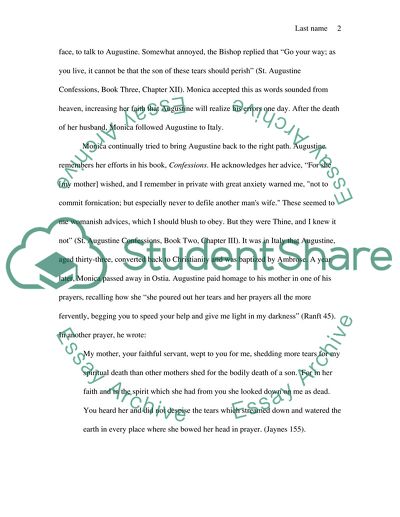Cite this document
(“Augustines Tribute to his Mother Book Report/Review”, n.d.)
Augustines Tribute to his Mother Book Report/Review. Retrieved from https://studentshare.org/literature/1739616-critical-paper-on-literature
Augustines Tribute to his Mother Book Report/Review. Retrieved from https://studentshare.org/literature/1739616-critical-paper-on-literature
(Augustines Tribute to His Mother Book Report/Review)
Augustines Tribute to His Mother Book Report/Review. https://studentshare.org/literature/1739616-critical-paper-on-literature.
Augustines Tribute to His Mother Book Report/Review. https://studentshare.org/literature/1739616-critical-paper-on-literature.
“Augustines Tribute to His Mother Book Report/Review”, n.d. https://studentshare.org/literature/1739616-critical-paper-on-literature.


